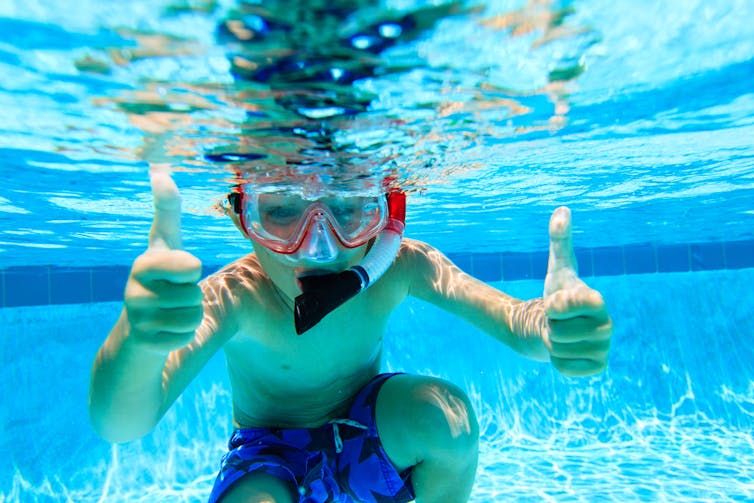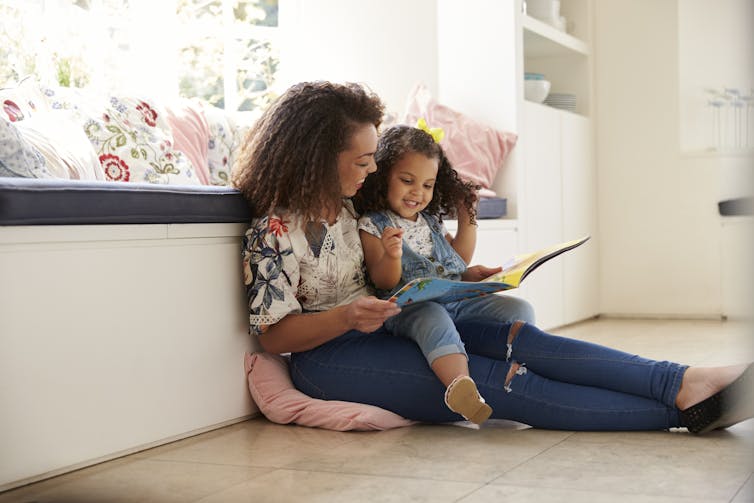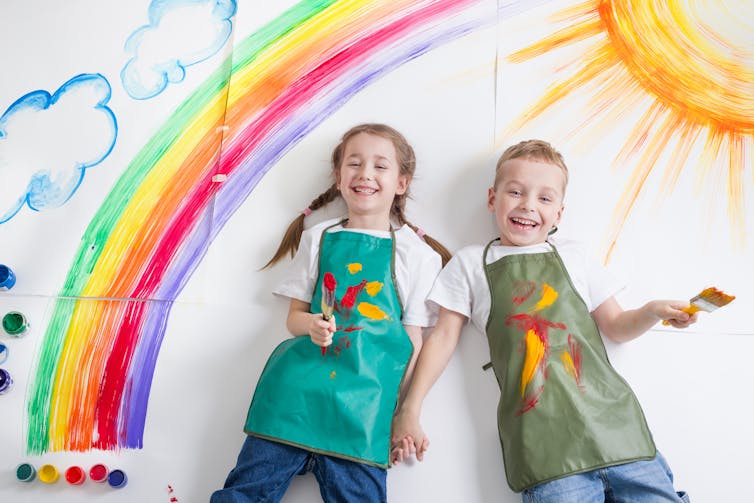
Eight Ways to Keep Your Kids Smart Over the Summer Break
The school holidays are looming, and so too is the apparently inevitable summer “learning slide” – where children lose knowledge and academic skills over the long summer break.
This is where parents can help out by helping their offspring carry on that learning during the summer holidays. Of course, learning at home is different from learning at school, but our new findings highlight how parents can act as “scaffolders” for children when learning from home.
The idea is that parents should offer just as much support as children need to complete a task – but not too much. And then crucially, remove that support as the child builds their own knowledge.
So with this in mind, here are eight painless ways for parents to support their children’s educational development over the summer – using the “scaffolding” technique.
1. Make them mini accountants
Learning doesn’t have to be just about facts or memorising times tables. Learning to self regulate is very important for children – from toddler-hood onwards. This can include things such as focusing attention on reading – but also regulating emotion, in terms of coping with changes of plan or dealing with sibling conflict during play.
Children can be helped to take responsibility by managing “budgets”, whether of money, time or activity choices. If your children have a permitted account of daily screen time, or a pocket money budget, help them to manage that themselves. Tangible markers of time or money (such as sand timers or coins) help even younger children see what they have to spend, and what’s left.
2. Be a parent cheerleader
A child can achieve something bigger and more satisfying with a parent’s help. And by praising their contribution, parents can help to develop the child’s sense of mastery. This doesn’t have to be only about school learning, riding a bike or grasping a new game brings those feelings too. “Autonomy support” looks to be an effective approach – this is the idea that instead of nagging or arguing, show concern and praise effort to help your child achieve self control. Think optimistic, empathetic and encouraging.

3. But know when to stand back
Sensitive parenting is also about helping your child to gauge when they can achieve something independently. Children need to develop a sense of their own capabilities and know when to ask for help – and problem solving can be really motivating if it’s part of a creative endeavour. Set them a task, such as how deep has the hole got to be to bury dad in the sand or get them to keep score in a family game of beach volleyball.
4. Channel Goldilocks
Give just as much help as is needed, and not too much. A child who works out how to divide up a blackberry haul with a few well-placed hints – or manages to put their own shoes on – learns something important about mastery as well as about numbers or laces. Holidays can be good for this because there’s often less of the everyday pressure to get somewhere on time, avoiding the temptation to be quick and take over from your child.
5. Share stories
Reading still underlies so much of our learning and summer can provide opportunities to read every day – whether it’s a slightly less time-pressured bedtime story, magazine or comics on a long journey or keeping and sharing diaries.
Your child doesn’t have to do all the reading either – shared stories really helps academic progress and gives your child access to more challenging material. It can also be a lovely cosy wind down at the end of the day. You can also provide a good role model if your child sees you enjoying your own holiday reading.

6. Technology rules
The right technology can provide all sorts of learning opportunities for children – from creating holiday diary vlogs to share with relatives, to YouTube videos for DIY art and crafts ideas. Just make sure you keep screens for the daytime – there is solid evidence that shows the sleep disrupting effects of blue light. Switching off a couple of hours before bedtime is a good rule of thumb.
7. It’s not a race
Every family and child is different. A child’s developmental timetable really varies – especially in young children. Your child might not be at the same level of self regulation as their cousin, but every child needs to develop in their own time – with your help and support. It’s all about starting from where the child is, rather than where someone tells you the child should be.

8. Tune in to your child
Listening and being interested in what your child is doing really helps you support their discovery of the world. And this can be much easier at holiday time if you are somewhere new. But even walking round the local park with a magnifying glass and a bug spotting app or chart, works. The Wildlife Trust has some great ideas – both low cost and free.
Most importantly, have fun together – summer holidays are a wonderful opportunity to share learning experiences that will stay with a child for years to come and will help you bond as a family.![]()
Nicola Yuill, Senior Lecturer in Psychology, University of Sussex
This article is republished from The Conversation under a Creative Commons license. Read the original article.


